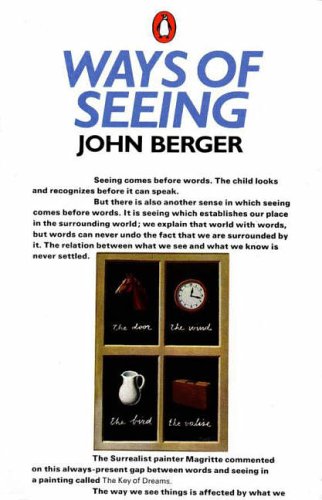解读谜一样的奥本海默
American Prometheus: The Triumph and Tragedy of J. Robert Oppenheimer by Kai Bird and Martin J. Sherwin
《美国普罗米修斯:罗伯特·奥本海默的成功与悲剧》
凯·伯德与马丁·谢温著
原子弹在日本广岛和长崎爆炸,是世界历史上最惨烈的一章。秘密研制出原子弹的曼哈顿计划也因此尽人皆知。所以,我对这本书的期望,无非是原子弹发明过程中的精彩故事和伦理思考:一代天才的物理学家、核物理和量子力学的创立和突破性发展、神出鬼没的间谍活动、制造和使用原子弹的道德问题,以及冷战时期的核恐惧和核武竞赛等等。对领导曼哈顿计划的奥本海默本人,我只有模糊的了解,也无太大的好奇。毕竟,在如此巨大的、改变人类历史的事件中,个人变得不重要。没有奥本海默,照样会有原子弹。再说,促成曼哈顿计划或参与原子弹制造的物理学家里包括爱因斯坦、波尔、费米和费曼这些天才级别的科学家,很难想象负责行政的奥本海默如何能够在这群人中脱颖而出。但这本传记表明,有时候个人魅力竟然可以超越重大历史事件,超越客观成就更高的同路人,变成书里面最有意思的内容。至少,这就是本人的阅读体验。
读罢传记最大的感叹,就是世界上居然还有头脑这么复杂的人。奥本海默的终身好友伊西多·拉比(Isidor Rabi,1944年诺贝尔物理学奖)曾说:“上帝作证,我真的不是最单纯的人啊;可跟奥本海默相比,我就太太太简单啦!”
奥本海默的“复杂”主要可以从两个方面看。
全能型智力
奥本海默18岁进入哈佛大学,然后按自己的预定计划,轻轻松松地三年毕业。但该选什么专业,却始终拿不定主意,应该学建筑呢,还是研究古典文学?将来想当诗人还是画家?最终,他选的是化学系,以化学学士毕业,但学位刚到手,他已经决定改修物理了。
作为科学家的奥本海默,当然比不上波尔、爱因斯坦,也比不上他的许多同学或朋友。 但他在物理学上的成就,仍然可圈可点。奥本海默的研究领域涵盖天文、宇宙射线、核物理、量子场理论及基本粒子。虽然正式发表的论文寥寥无几,篇幅还都很短,他仍于1945、1951 和1967获得过三次诺贝尔奖提名。奥本海默与学生合作于1939年发表的一篇论文,事实上首次描述了黑洞的存在 -- 远在“黑洞”这个概念出现之前。有人甚至认为,如果他活得更长一些的话,极有可能因此而获奖。
全能型智力的人悟性极高,学东西多而快。理论物理这么深奥的学科,奥本海默依然能够触类旁通,涉猎其中的数个领域。但这类人的缺点自然就是不专一,在哪个方面花的时间和精力都不够。默里·盖尔曼(Murray Gell-Mann, 1969年诺贝尔物理学奖)说奥没有“坐骨肌肉”,一刻也停不下来,思维如此,身体也如此。1930年,奥本海默发表论文,推测带正电的电子的存在。这是他根据英国物理学家、他在剑桥的同学保罗·狄拉克(Paul Dirac,1933年诺贝尔物理学奖)关于电子的公式推算出来的。狄拉克本人最初都拿不准,但在奥的督促下,提出了“反电子”以及“反物质”的概念。1932年实验物理学家证实了“反电子”的存在。次年,狄拉克籍此获得诺贝尔奖。
奥本海默对其它完全不同的智力领域的涉猎,也不限于浅尝则止,总能达到相当的造诣。他最广为流传的言论,是在原子弹试爆成功后说的那句“我成了死神,世界的毁灭者。” 这句话引自印度圣典《薄伽梵歌》。奥本海默在伯克利做物理教授时,曾经请研究梵文的教授朋友开小灶,每周四晚上都用来专门学习梵文。本文后面还会讲到奥年轻时有过一次“茅塞顿开”的经历。顿悟的瞬间是他读到马塞尔·普鲁斯特的《追忆似水年华》中的这一句话时:
“或许她本不会以为邪恶是如此罕见、如此异常、如此飘渺的一个状态,如果她能够从自己、从所有人身上察觉出那种对自己所造成的伤害的无动于衷的话;无论用什么名义来描述,那种无动于衷,正是“残忍”的最可怕和最恒久的表现形式。”
《追忆似水年华》是篇幅最长、文字最复杂的文学巨著之一。坊间说法是,长期困在病床不能动弹是阅读此书的最佳时间。奥本海默读的当然还是法语原著;他精通八门语言。
奥本海默在艺术上的造诣,除了天赋,还跟家庭有关。 他的父亲是个成功的犹太商人,母亲酷爱艺术。小时候家里挂的梵高原作,竟然就有三幅。奥对诗歌情有独钟,年轻时在校报上发表过一些小诗。当上了举世闻名的普林斯顿高等研究院院长以后,他无视那些骄傲的数学家物理学家的反对,把著名诗人托马斯·艾略特也请进了研究院。艾略特的名诗《荒原》是他最喜爱的长诗之一。
有意思的是,奥居然也有不开窍的地方,一个朋友跟他说:“你是我认识的唯一不懂音乐的物理学家。”
一生的道德伦理纠结
奥本海默毕生都在应付道德伦理问题。
去英国剑桥就读研究生期间,奥本海默从小就展露的天分,突然不灵了。具体原因似乎在于,几经周折,他最终的落脚之地是帕特里克·布莱克特(Patrick Blackett,1948年诺贝尔物理学奖)实验室。布莱克特是优秀的实验物理学家,而奥本海默的动手能力乏善可陈。一来二去,他的心理就不平衡了,对布莱克特产生了强烈的忌恨。有一天,他居然把一个涂满化学毒品的苹果放到了布莱克特的桌子上。大概他在实验室里实在是笨手笨脚,布莱克特很快就发现化学药品丢失,并报告了学校。最终,全靠父亲的周旋,奥本海默才没被开除学籍,只得了一个留校察看并定期去看心理医生的处理。“毒苹果”事件发生在1925年,他来剑桥大学还不到一年。
而这并不是年轻的奥本海默唯一一次试图伤害他人的事件。他用皮带勒过好友的脖子,还从楼上扔过行李箱去砸过路的行人。总之,奥本海默内心有极其黑暗的一面。他自己很清楚却无法理解这些行为,心理医生更摸不到边际。一时间,他抑郁暴躁,甚至有了自杀的冲动和计划。
1926年春,奥本海默跟几个朋友去科西嘉岛度假散心,白天爬山,晚上读书。正是在这里,他读到了前面引的《似水年华》里的那个句子。普鲁斯特对人性的深刻理解,如醍醐灌顶,使奥本海默认识到自己的恶劣心理和行为,其实人皆有之,从而得到解脱。几十年之后,他依然能一字不差地背诵这个普鲁斯特长句。
当然,伦理道德困境如影随形,始终离奥本海默不远。“原子弹之父”的称呼虽是褒奖,也是一种无形的质疑。奥本海默的另一个楷模,是《薄伽梵歌》里的王子阿朱纳。阿朱纳在敌军中看到亲友时,失去了战斗的勇气。但黑天神告诉他说,唯有肉体会死亡,自我是永生的;他是战士,必须担起战争的责任,去战斗去杀人。阿朱纳最后被说服。奥本海默对这个故事的认同说明,当他引用“我成了死神,世界的毁灭者”之时,内心深处未必如外人想象那样,只有愧疚和自责;他似乎也在表达一种参与战争的义不容辞。1964年,德国剧作家赫拉纳·基普法特的话剧《罗伯特·奥本海默案件》在世界各大城市上演,反响热烈。这个剧把奥本海默塑造成悲剧英雄,但他本人读过剧本后,却很不开心,甚至给吉普法特写信,威胁要把他告上法庭。他尤其不喜欢话剧落幕时,舞台上的奥本海默充满忏悔的独白:“我开始怀疑,我们难道不是科学精神的背叛者吗?。。。。我们是在帮魔鬼干活。。。。”奥无法接受这样黑白分明的思维,这根本不是他切身体验的道德困境。他认为剧作者忘了德国对格尔尼卡、考文垂、汉堡、华沙等城市的毁灭性轰炸。针对纳粹对世界的威胁,赶在德国之前造出原子弹义不容辞,因此他对参与原子弹的发明并无悔意。
另外,除了这种拿得上台面的大道理,奥本海默也从曼哈顿计划的成功中达到了个人成就的巅峰,获得了很大的名誉和权力,从而有一种不由自主的发自内心的满足。在维尔京群岛别墅的邻居声称,她见过奥夫妻俩在广岛纪念日兴高采烈的情形。原子弹对奥本海默而言,是成也萧何,败也萧何。他因此无法为原子弹造成的灾难和随之而来的核恐惧作彻底的反省和自责。他的伦理纠结是这些林林总总的、或正或反、或强烈或微妙的感情和思考的综合,是一种对自身和对人性的理性及欲望的全面认知和接受。
龙游浅滩
这种复杂聪明的个性,自然而然就筑成一条让他人难以接近的鸿沟。所以奥本海默还是一个寂寞的人,虽然身边簇集了无数欣赏他的科学家,仰慕他的学生们。
更严重的问题是,世上还有从理智到情感都黑白分别、非此即彼的一类人。他们思维简单,并以简单为荣,与奥这样的聪明人完全不来电,彼此怀疑、互不信任。美国总统杜鲁门就是其中一个。他流传最广的一句话是:“能不能给我找个只有一只手的经济学家啊?!” 原因是所有的经济学家讨论问题时都会说,从一方面看,但从另一方面看。。。。让他烦不胜烦(英文表达是“从一只手看。。。,但从另一只手看。。。“)。而奥本海默简直就是“千手观音”。
杜鲁门任总统后,曾与奥本海默单独面谈过一次,讨论如何控制和发展核能核武器。杜鲁门开门见山,他要先建立国内政策,再考虑国际问题;而奥的想法恰恰相反。话不投机半句多,平常以善谈著称的奥本海默一时竟然说不出话来。他不停地搓手,突然冒出一句“总统,我能感到手上有鲜血。” 杜鲁门反感顿起,后来跟助手说,我手上鲜血更多,但人不能为这种事纠结,以后不要再跟这个“哭娃娃”见面了。
对于是否发展氢弹,奥本海默在广泛征求全国各方面专家的意见,从技术挑战到伦理问题各方面都周密考虑过后,倾向于反对。可到了杜鲁门和美国军方这里,问题只有一个:苏联会不会开发啊?会的 -- 那还犹豫啥呢!于是,奥本海默成了阻碍核武器发展的绊脚石,以至于他对国家的忠诚都被怀疑,又正值冷战初起,遂有轰动一时的“奥本海默案件”。
书里对这个案件的来龙去脉有非常详细的描述,跟本文最相关的是奥本海默本人在被调查过程中及在(非正式)法庭上的态度和举止。从他的律师、到朋友、到秘书都觉得他的态度过于软弱被动,给了对方可乘之机。我认为,奥本海默早年的亲共经历和对道德伦理问题的过于复杂以致于显得模棱两可的态度,确实是他作为国家安全问题的最高科学权威的致命伤。他既不能像他的很多科学家朋友那样义无反顾地反对核武器,又不能跟政客和军方的好战派似的毫无顾忌地发展核武器,结果考虑越周全,越两头不讨好。与他对立的一方,无论出于私人恩怨还是信念原则,大概并不真正怀疑他个人的清白;制造出这个问讯的机会,目标就是清除政敌。奥本海默的反击如此无力,则是因为他的内心负载过大。有一天,秘书只是关心地询问了一句,他就立即坐下来,花几个小时把自己的生平详细地讲了一遍。对他而言,这个问讯正是对他一生的质疑,而他是在黑暗世界里徘徊过的人,并不认为自己(或任何人)完全无辜,因此不能唤起那种无需自省的坦然和义愤,无法给出那种非黑即白掷地有声的回击。他有的只是对那些自以为是的粗鄙之徒的蔑视和对命运之荒诞的默认。
马丁·谢温(1937年-)是研究核能及核扩散的历史学家。 80年跟出版社签约后,他预计自己可以在四五年之内写完这部传记,结果却拖了二十五年。这还是在请自己的作家朋友凯·伯德合作之后才完成的。这或许是因为关于原子弹发明这段历史、关于奥本海默的资料过于丰富难以提炼;更大的可能是,奥本海默的天才如同一个深奥的谜,线索虽多,却无从下手,越解越没有头绪。事实上,作者最终似乎也没有能够完全把握住奥本海默的个性,转而花了很大篇幅反复分析奥被指称亲共的每句言谈和每个细节,籍此表明奥的无辜,从而建立起一个可以与普罗米修斯相比的悲剧英雄的形象。普罗米修斯给人类盗来了火,使人类成为万物之灵,自己却被宙斯用锁链缚在一块山岩上,肝脏被饿鹰每天啄食。但奥本海默领导制造原子弹的成就,以及被政敌排挤侮辱的冤屈,与此仍然无法相比。这部荣获2006年普利策奖的巨著,最大特色在于史料的翔实和完整,但读者仍然需要靠自己的悟性做一些思考和推测。
也是在科西嘉岛旅游那次,奥本海默跟同伴们说:“我最欣赏的,是那种一生做成了很多了不起的事,却依然泪流满面的人。” 他似乎已经看到了自己的未来。奥本海默求仁得仁,一生应无太大的遗憾。




![Homo Deus: A Brief History of Tomorrow by [Harari, Yuval Noah]](https://images-na.ssl-images-amazon.com/images/I/414JWlgTXGL.jpg)
![The Luminous Heart of Jonah S. by [Nahai, Gina B.]](https://images-na.ssl-images-amazon.com/images/I/61fEOQkkyeL.jpg)

![The Shock of the New by [Hughes, Robert]](https://images-na.ssl-images-amazon.com/images/I/41ISvHng3PL.jpg)

